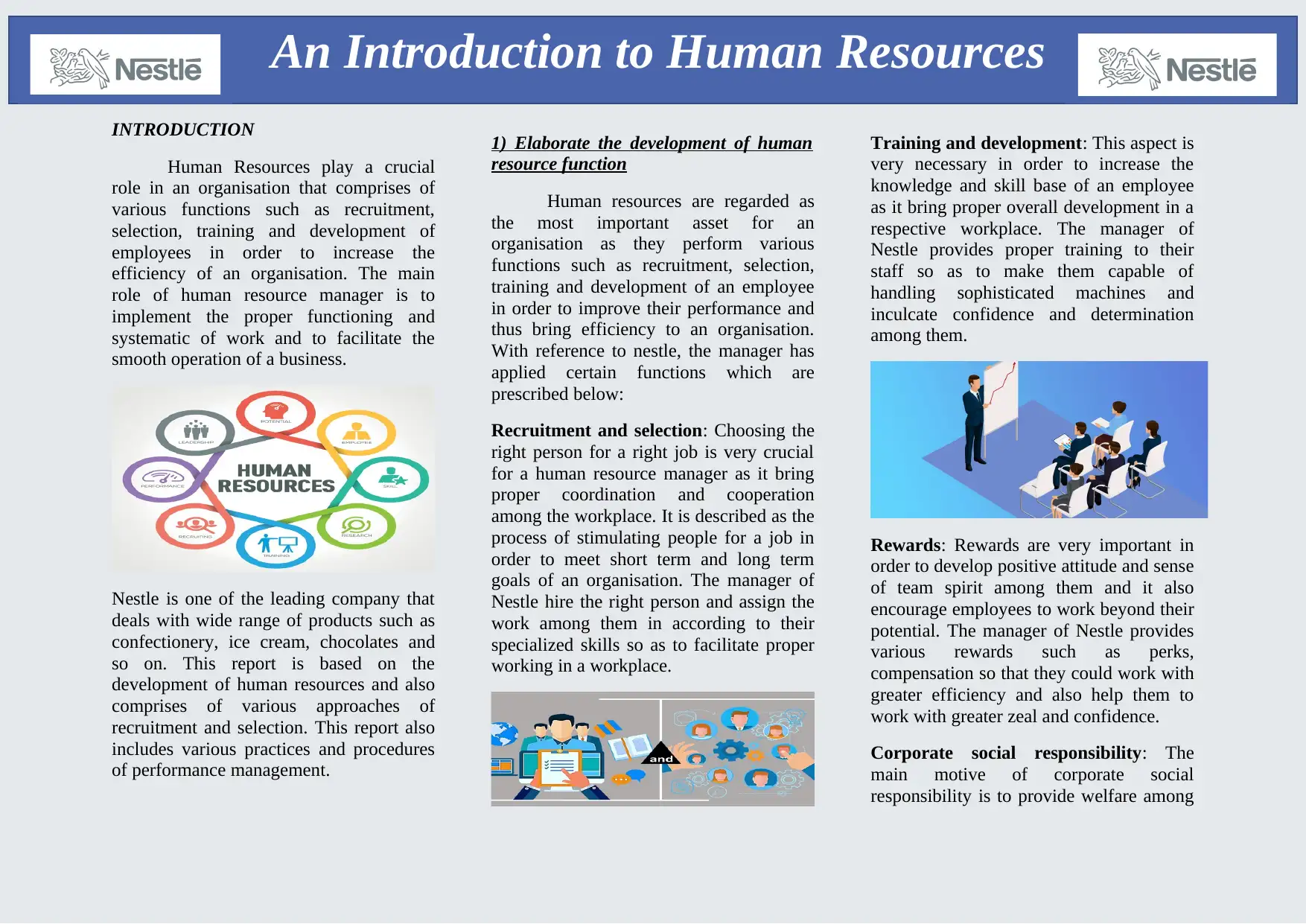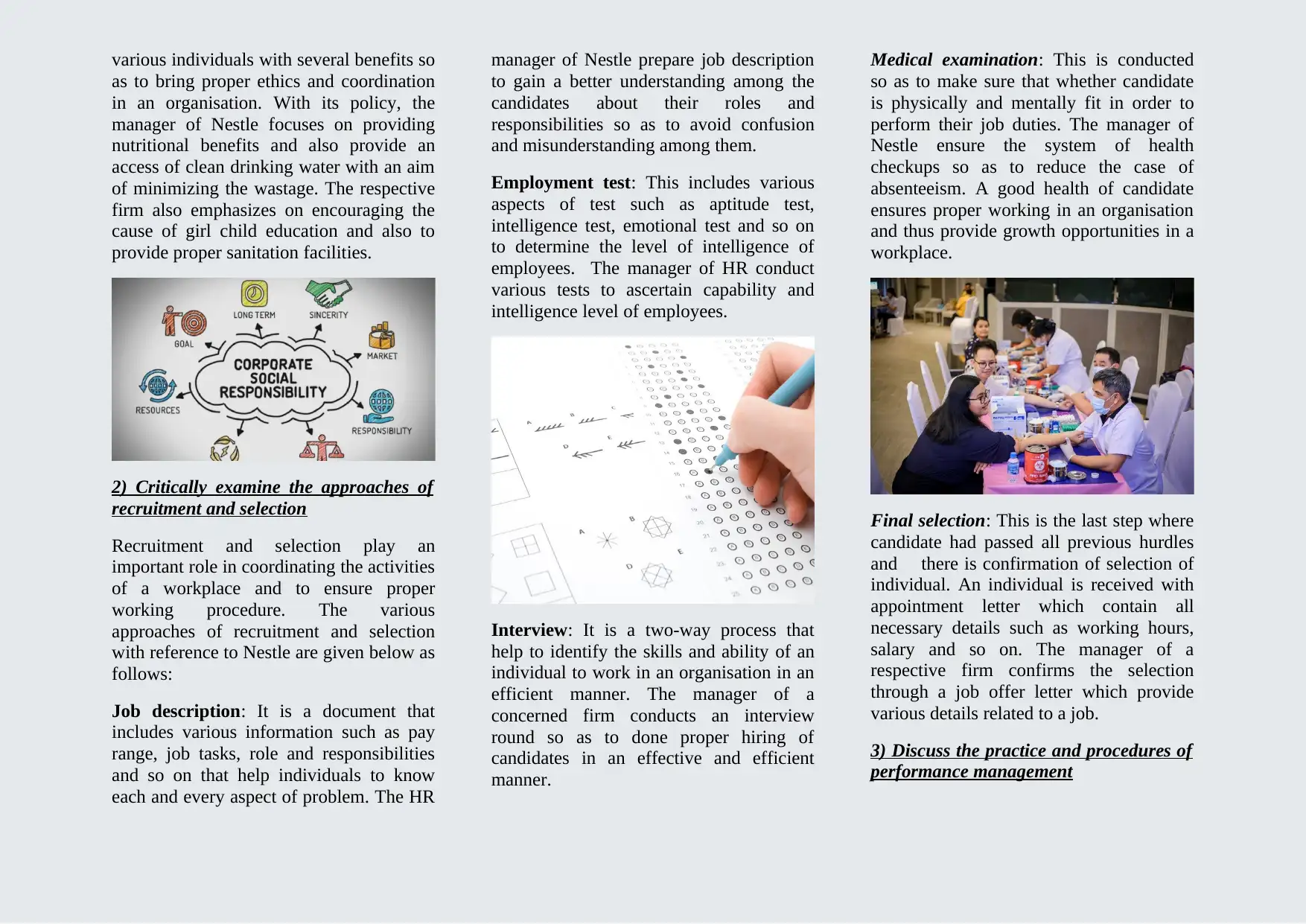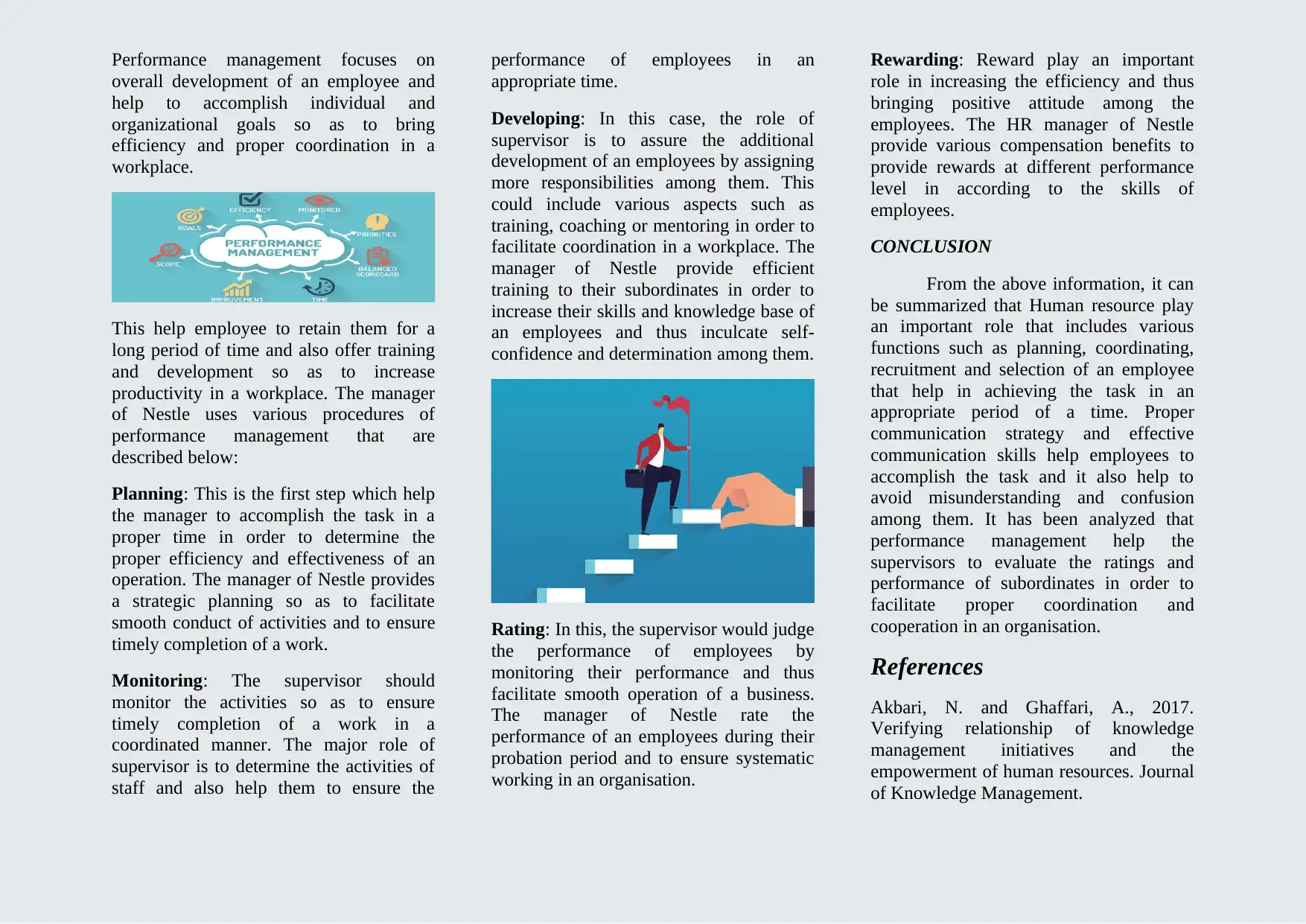An Analysis of Human Resource Management at Nestle: A Report
VerifiedAdded on 2023/01/12
|4
|1360
|62
Report
AI Summary
This report provides an overview of human resource management practices at Nestle, a leading global company. It examines the development of the human resource function, including recruitment, selection, training, and development, emphasizing their importance in enhancing organizational efficiency. The report critically analyzes Nestle's approaches to recruitment and selection, highlighting the use of job descriptions, HR interviews, medical examinations, and final selection processes. Furthermore, it discusses the practices and procedures of performance management within Nestle, including planning, monitoring, developing, rating, and rewarding employees. The report concludes by summarizing the key aspects of human resource management, emphasizing the significance of effective communication and performance evaluation in fostering cooperation and achieving organizational goals. This report is based on the provided student's assignment for the website Desklib.
1 out of 4










![[object Object]](/_next/static/media/star-bottom.7253800d.svg)